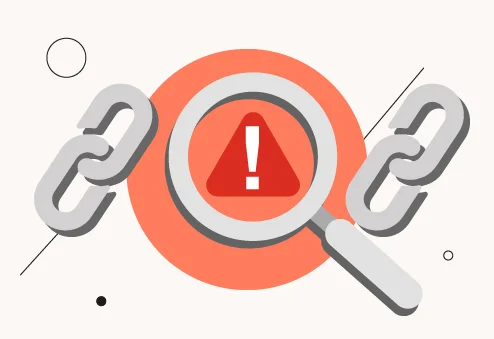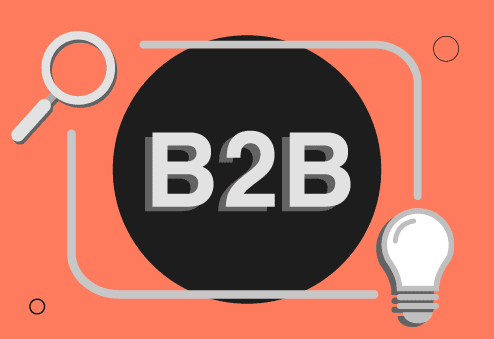If you’re involved in digital marketing, you’ve probably heard the term SERP thrown around.
But what exactly is a SERP?
In this article, we’ll break down the concept of SERP in simple terms, helping you understand its significance and how it impacts your online presence.
So, Let’s get started.
What is SERP in Digital Marketing?
As a digital marketer, you should be familiar with the term SERP or Search Engine Results Page.
SERP refers to the page that appears after a user enters a query into a search engine, such as Google or Bing.
This page displays a list of search results that are relevant to the user’s query.
SERP is an essential component of digital marketing because it determines the visibility of a website on search engines. The higher a website appears on the SERP, the more likely it is to receive traffic from users searching for relevant information.
Search engines use complex algorithms to determine the order in which websites appear on the SERP. These algorithms take into account various factors such as the relevance of the content, the quality of the website, and the user’s location.
Types of SERP Features
When you search for something on a search engine, you might notice that there are different types of results that come up on the page.
These are called SERP features, and they can include a variety of different types of content. Here are some of the most common types of SERP features that you might see:
Organic Results
Organic results are the standard search results that come up when you search for something on a search engine.
These are the results that are not paid for, and they are ranked based on a variety of factors, including the relevance of the content to the search query and the authority of the website.
Paid Ads
Paid ads are the results that come up at the top of the search results page, and they are marked with the word (Ad) next to them.
These results are paid for by advertisers, and they are ranked based on a variety of factors, including the relevance of the ad to the search query and the amount of money that the advertiser is willing to pay.
Featured Snippets
Featured snippets are the boxes that come up at the top of the search results page, and they provide a summary of the content that is on the page.
These snippets are designed to provide users with quick answers to their search queries, and they are often used for “how-to” or “what-is” type queries.
Image Pack
The image pack is a collection of images that come up when you search for something on a search engine.
These images are often related to the search query, and they can be used to provide users with a visual representation of the content that is available.
Local Pack
The local pack is a set of results that come up when you search for something that has a local component.
These results are designed to provide users with information about businesses that are located in their area, and they often include things like addresses, phone numbers, and reviews.
Video Results
Video results are the results that come up when you search for something that has a video component. These results are often related to the search query, and they can be used to provide users with a visual representation of the content that is available.
Knowledge Panel
The knowledge panel is a box that comes up on the search results page, and it provides users with information about a specific entity.
This can include things like a person’s name, a company’s information, or information about a specific place.
Shopping Results
Shopping results are the results that come up when you search for something that can be purchased online. These results are often related to the search query, and they can be used to provide users with information about where they can buy a specific product.
People Also Ask
People also ask is a box that comes up on the search results page, and it provides users with additional questions that are related to their search query. These questions are designed to help users find the information that they are looking for.
Rich Snippets
Rich snippets are the results that come up when you search for something that has a rich snippet component. These results are often related to the search query, and they can be used to provide users with additional information about the content that is available.
That’s a brief overview of some of the most common types of SERP features that you might see when you search for something on a search engine.
Importance of SERP for SEO
When it comes to SEO, the SERP (Search Engine Results Page) is the ultimate battleground. It is where businesses compete for visibility, traffic, and ultimately, conversions. The SERP is a crucial aspect of SEO, and understanding its importance is key to success.
Ranking and Visibility
The SERP is where your website’s ranking is displayed. The higher your website ranks, the more visibility it gets. This means that your website is more likely to be seen by potential customers, which can lead to increased traffic and ultimately, more conversions.
Traffic Generation
The SERP is also important for generating traffic. The higher your website ranks, the more likely it is that people will click on your website. This means that the SERP can be a powerful tool for driving traffic to your website.
Relevance and Authority
The SERP is not just about ranking and visibility. It is also about relevance and authority. The more relevant and authoritative your website is, the higher it will rank on the SERP. This means that your website needs to have high-quality content that is relevant to your target audience.
Role of Keywords in SERP
When it comes to search engine results pages (SERP), keywords play a crucial role in determining the ranking of a website. A keyword is a word or phrase that people use to search for information on the internet. Search engines use these keywords to match the search queries with the relevant web pages.
There are different types of search queries, such as informational queries, transactional queries, and navigational queries. Each type of query has a different intent, and the keywords used in the search query can provide valuable insights into the user’s intent.
For example, if someone searches for “best pizza places near me,” it is a transactional query that indicates that the user is looking for a place to eat pizza. In contrast, if someone searches for “how to make pizza at home,” it is an informational query that indicates that the user is looking for information on how to make pizza.
Using the right keywords in your website’s content can help you rank higher in the SERP for relevant search queries. However, it is important to use keywords naturally and avoid keyword stuffing, which can result in a penalty from search engines.
In addition to using keywords in your website’s content, you can also use them in meta tags, such as the title tag and meta description, to provide search engines with more information about your website’s content.
Overall, understanding the role of keywords in SERP can help you optimize your website for search engines and improve your visibility in search results.
Understanding Google’s SERP Algorithm
When you search for something on Google, the search engine uses a complex algorithm to determine which results to show you and in what order. This algorithm is called the SERP algorithm, which stands for Search Engine Results Page.
Google’s SERP algorithm takes into account hundreds of different ranking signals to determine which pages are most relevant and useful to the user. These signals include factors such as the content on the page, the quality and relevance of external links pointing to the page, and the user’s search history and location.
One of the most important factors in Google’s SERP algorithm is relevance. Google wants to show users the most relevant results for their search query, so it looks for pages that include the keywords the user searched for and that are related to the user’s search intent.
Another important factor is authority. Google wants to show users pages that are trustworthy and authoritative, so it looks for pages that have high-quality external links pointing to them and that are from reputable sources.
Impact of SERP on Content Marketing
When it comes to content marketing, SERP plays a crucial role in determining the success of your efforts. SERP, or Search Engine Results Page, is the page that appears after you enter a query in a search engine like Google. The way your content appears on the SERP can have a significant impact on its visibility and reach.
One of the most significant impacts of SERP on content marketing is that it can affect the click-through rate (CTR) of your content. If your content appears at the top of the SERP, it is more likely to be clicked on by users. This means that you need to create relevant, high-quality content that is optimized for search engines to increase your chances of appearing at the top of the SERP.
Another impact of SERP on content marketing is that it can affect the type of content you create. For example, if you notice that your target audience is searching for a specific keyword or phrase, you may want to create content that is relevant to that keyword or phrase. This will increase the chances of your content appearing on the SERP when someone searches for that keyword or phrase.
It’s also essential to note that the SERP is constantly evolving, and search engines are continually updating their algorithms to provide users with the best possible search results. This means that you need to stay up-to-date with the latest SEO best practices to ensure that your content is optimized for search engines.
Paid Search and Pay-Per-Click in SERP
When you search for something on a search engine, you might see some results that have a small “Ad” label next to them.
These are paid search results, also known as pay-per-click (PPC) ads. Paid search results are a type of search engine results page (SERP) that businesses can pay for to appear at the top of the search results.
Paid search results are different from organic search results, which are the regular search results that appear below the paid search results. Organic search results are determined by the search engine’s algorithm, while paid search results are determined by the highest bidder. In paid search, businesses bid on specific keywords that are relevant to their products or services. When someone searches for those keywords, the search engine will display the ads of the highest bidders at the top of the search results. The cost of each click on the ad is determined by the bid amount, and businesses only pay when someone clicks on their ad.
Pay-per-click (PPC) is a type of paid search where businesses only pay when someone clicks on their ad. PPC ads can appear in various forms, including text ads, shopping ads, and display ads. Shopping ads are a type of PPC ad that displays product images and information, making it easier for users to find and purchase products.
How To Optimize for SERP
To improve your website’s visibility on search engine results pages (SERP), you need to optimize your website for search engines.
Optimizing your website for SERP involves both on-page and off-page SEO techniques.
On-Page SEO
On-page SEO refers to the optimization of your website’s content and structure. Here are some on-page SEO techniques to optimize for SERP:
- Keyword research: Identify keywords that your target audience is searching for and incorporate them into your content.
- Title tag: Use descriptive and relevant title tags for each page on your website.
- Meta description: Write compelling meta descriptions to entice users to click on your website.
- Headings: Use H1, H2, and H3 tags to structure your content and make it easier for search engines to understand.
- Alt text: Use descriptive alt text for images to help search engines understand the content on your website.
Off-Page SEO
Off-page SEO refers to the optimization of your website’s external factors, such as backlinks and social media presence. Here are some off-page SEO techniques to optimize for SERP:
- Link building: Build high-quality backlinks from authoritative websites to improve your website’s authority and search engine rankings.
- Social media: Establish a strong social media presence to increase brand awareness and drive traffic to your website.
- Local SEO: Optimize your website for local search by creating local listings, optimizing your Google My Business profile, and getting listed in local directories.
By implementing these on-page and off-page SEO techniques, you can optimize your website for SERP and improve your search engine rankings.
Analyzing SERP with Google Analytics
One of the most effective ways to analyze SERP (Search Engine Results Page) is by using Google Analytics. Google Analytics provides a wealth of information about your website’s traffic, including which keywords are driving traffic to your site and how visitors are interacting with your site.
To get started, you’ll need to set up Google Analytics on your website and connect it to your Google Search Console account. Once you’ve done that, you can start analyzing your website’s search traffic.
One of the most useful reports in Google Analytics for analyzing SERP is the “Search Console” report. This report provides information about the keywords that are driving traffic to your site, as well as the pages on your site that are ranking for those keywords.
You can also use Google Analytics to track user behavior on your site after they arrive from a search engine. For example, you can track how long users are staying on your site, which pages they are visiting, and whether they are converting (e.g. making a purchase, filling out a form, etc.).
Another useful report in Google Analytics for analyzing SERP is the “Behavior” report. This report provides information about how users are interacting with your site, including which pages are the most popular, which pages have the highest bounce rate, and which pages are leading to the most conversions.
SERP Features on Other Search Engines
While Google dominates the search engine market, it’s important to note that other search engines like Bing and Yahoo also have their own SERP features.
Bing
Bing has several SERP features that are similar to Google’s. These include featured snippets, knowledge graphs, and local packs. Bing also has its own unique SERP features, such as “Bing Visual Search” which allows users to search for images by drawing or uploading a picture.
Yahoo
Yahoo’s SERP features are also similar to Google’s. These include featured snippets, knowledge graphs, and local packs. Yahoo also has its own unique SERP features, such as “Yahoo Answers” which displays relevant questions and answers related to the search query.
It’s important to keep in mind that while these search engines have similar SERP features, they may display them differently or prioritize them differently in their search results. As a digital marketer, it’s important to understand how each search engine displays SERP features and optimize your content accordingly.
Conclusion
In conclusion, understanding the SERP (Search Engine Results Page) is crucial for any digital marketer or business owner looking to improve their online presence.
By optimizing your website and content for search engines, you can increase your chances of appearing higher in the SERP and driving more traffic to your website.
It’s important to keep in mind that the SERP is constantly evolving, and search engines are constantly introducing new features and updates.
As a digital marketer, it’s crucial to stay up-to-date with these changes and adapt your strategy accordingly.









